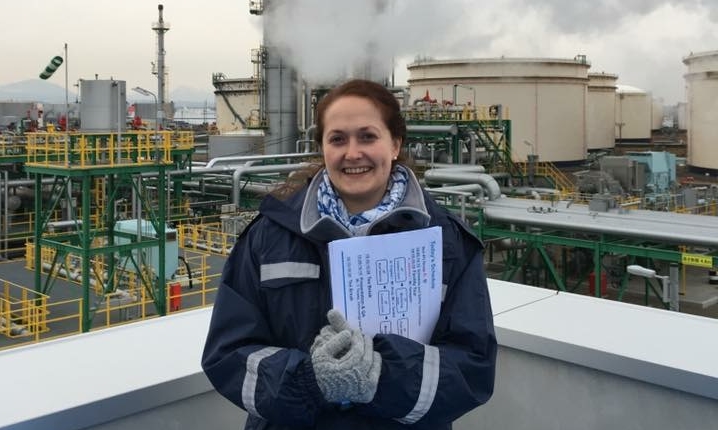
06.05.2024
CCS and CO₂-EOR; Norway contributes to new standards
A CLIMIT-supported project will contribute to deliveries to ISO TC265. Purpose is to design international standards and technical reports for CCS and CO2-EOR.
By using internationally recognized standards, important barriers to the spread of CO2 management can be dismantled.
Standards create value
– International standards are crucial for advancing CCS, especially for CCS value chains across national borders. Norway has skilled experts in the field, and we are pleased that CLIMIT can contribute to supporting IOM Law in this important work – says Camilla Bergsli, senior advisor at Gassnova.
ISO TC265 was established in 2011, and today 28 countries participate in the negotiations. ISO TC265 has six working groups, each covering an element of the value chain – capture, transport, storage, cross-cutting issues, CO2 transport by ship, and CO2-EOR. “Carbon Dioxide Enhanced Oil Recovery” (CO2-EOR) is a method used to increase the amount of oil extracted from exploration fields, where the injected and utilized CO2 is stored in the reservoir. A separate committee under Standards Norway coordinates the participation of Norwegian experts in the various working groups – representing the span of Norwegian CCS and CCUS knowledge.
Standards and technical reports which are developed, create common understanding, gather and spread technical expertise, and provide a commercial basis for the technologies. Moreover, safe and effective implementation of CCS and CO2-EOR increases acceptance among decision-makers and in society at large.
Project Objectives
The purpose of this CLIMIT-supported project is to contribute to the finalization and publication of documents in ISO TC265, support Norwegian experts in promoting the country’s interests, and disseminate knowledge about the standards and the work. Norwegian matters and needs must be considered so that the documents are correctly applied in Norway, and do not conflict with Norwegian frameworks. ISO TC265 aims to contribute to predictability, cost reductions, and operational frameworks within the legal preconditions in a Norwegian, European, and international framework.
– Standardization is an important building block for the commercialization of CCS. We see that more companies are using the TC265 standards in their projects. Authorities from around the world have adopted these standards or are considering doing so, to bridge gaps or regulate technical details in their own CCS frameworks. In its Industrial Carbon Management-strategy from February this year, EU has communicated an increased focus on the use of standards for the European CCS framework.
This is to facilitate a commercial European market for CCS, and underscores that the work being done in the Norwegian mirror committee is more important than ever – says Ingvild Ombudstvedt, lawyer at IOM Law.

Ingvild Ombudstvedt ready to work for new standards.
Activities
The storage standard (27914) from 2017 has been reopened for revision, e.g. to include tools for quantification and verification of stored CO2 volumes. A lot of work was put into the first part of the project. An updated standard is aimed for 2025. Furthermore, the technical report for converting CO2-EOR to pure storage was almost completed in the fall of 2023. Publication is expected in 2024.
Fall 2023, the technical report for CO2 ship transport was also sent for review by the international committee. Publication is expected in 2024.
In 2023, there have been numerous activities related to the dissemination of project results, and assistance to new ISO TC265 countries. Presentations have been conducted at TCCS in Trondheim and at the 100-year anniversary of Standards Norway in Oslo. Additionally, in workshops for Asian developing countries organized by the U.S. Department of Commerce, experts from Norway, USA, Canada, Japan, and Australia have shared views and experiences from the standardization work.
Highlights
The project has contributed to completion of technical reports concerning the conversion of CO2-EOR to pure storage, and concerning CO2-transport by ship. The U.S. Department of Commerce – Commercial Law Development Program (CLDP), has recognized the value of ISO TC265 for regulatory development of CCUS in developing countries.
In the latter part of 2023, a technical committee for CCUS was established in the European Committee for Standardization. This committee will focus on converting more of the standards under TC265, into European matters – as well as negotiating new standards in which the ISO standards do not consider. Norwegian representatives participate in this work going forward.
